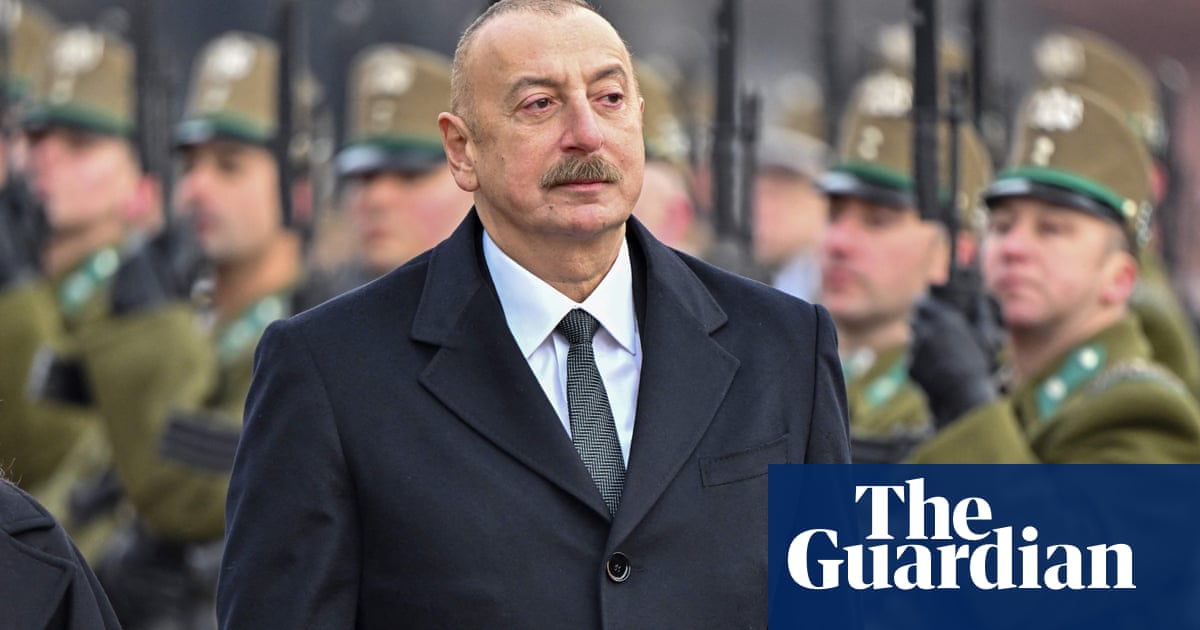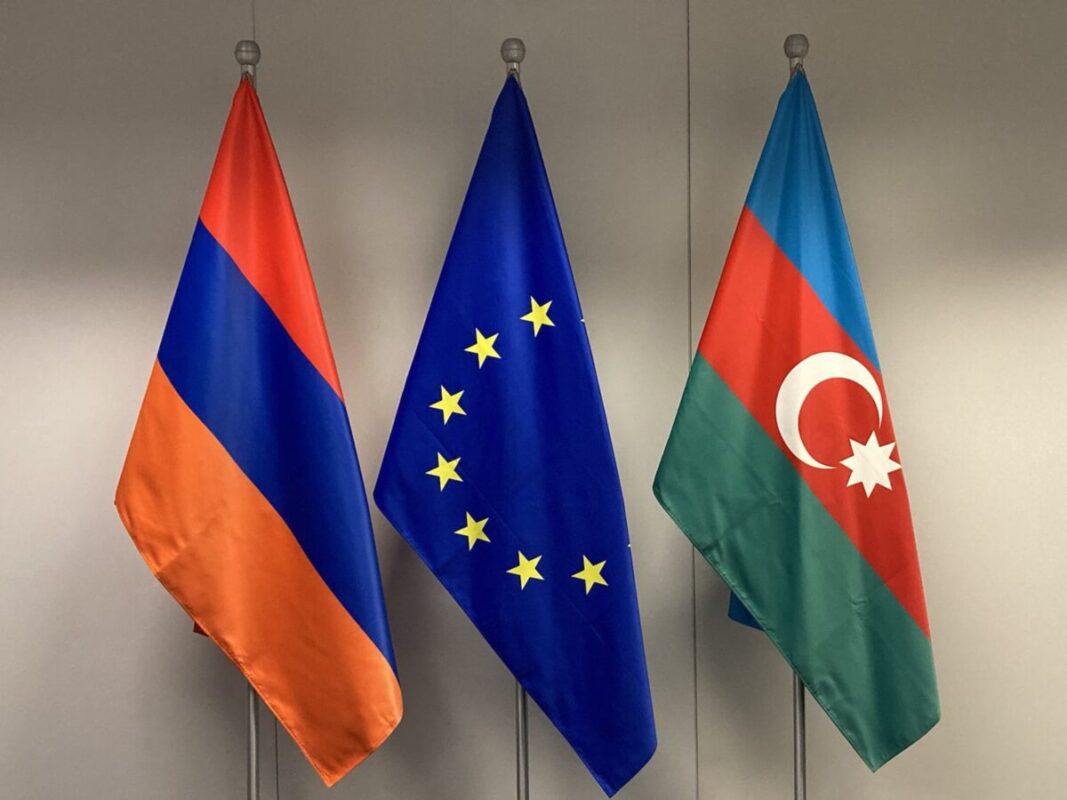South Caucasus News - Sep 26 2023 15:00 (EDT): Today's talks with Armenia Security Council secretary were quite constructive, says Azerbaijan presidential aide - Armenia News

Today's talks were quite constructive. This was stated by Hikmet Hajiyev, the assistant to the President of Azerbaijan, following his meeting Tuesday with the secretary of the Security Council of Armenia, Armen Grigoryan, Reuters reports.
Now there are more opportunities to move towards the normalization of Armenian-Azerbaijani relations, added the Azerbaijani official.
The Grigoryan-Hajiyev talks were held in Brussels—and with the mediation of the EU.

As the dramatic images emerge of thousands of Karabakh Armenians forced away from their homes in a mass exodus, some in the west are beginning to rethink their relationship with Azerbaijan.
Through a mixture of skilled diplomacy and lobbying, the resource-rich country has for years promoted itself in the UK and EU as a reliable security partner and vital transport hub.
But by launching a military offensive in Nagorno-Karabakh and triggering a humanitarian catastrophe as refugees pour out of the region, the Azerbaijanpresident, Ilham Aliyev, has drawn the ire of the EU and the US.
“The crisis and human suffering could and should have been prevented,” said a senior western diplomat in Baku, speaking on condition of anonymity. “It will be trickier for us to continue as usual with Azerbaijan.”
At the UN last week, the German foreign minister, Annalena Baerbock, accused Baku of “breaking its repeated assurances to refrain from the use of force, causing tremendous suffering to a population already in dire straits”. The French president, Emmanuel Macron, said Azerbaijani authorities were “uninhibited”.
“Many in Brussels and Washington feel shocked and betrayed by Azerbaijan’s use of force,” said Thomas de Waal, senior fellow at the Carnegie Europe thinktank. He said that western officials believe the inaction of the 2,000 Russian peacekeepers deployed to the region suggests that a side deal was reached between Moscow and Baku, who both blamed the Armenian prime minister, Nikol Pashinyan, and his pro-western pivot for the fighting.
“The west has been marginalised, despite long efforts to solve the conflict,” De Waal said. “For a long time, Azerbaijan was very skilled at projecting its value to the west. But there seems to be a revaluation going on about just how important and trustworthy Baku really is.”
Baku for years has been said to employ so-called “caviar diplomacy”: using cash and gifts to buy influence in Europe. The Guardian previously revealed how Azerbaijan funnelled about $2.9bn (£2.2bn) out of the country via a network of secret British companies to pay supporters, lobbyists and politicians in Europe, buy luxury goods and services, and launder money for the Azerbaijani elite.
Prior to the latest fighting in Karabakh, Europe appeared to be moving closer to Baku, despite the country’s poor human rights record and credible evidence that it committed atrocities in the 2020 Karabakh war.
The European Commission president, Ursula von der Leyen, travelled to Baku in 2022 as the EU looked to reduce its reliance on Russian energy, hailing Azerbaijan as a “crucial” and “reliable” energy supplier. She announced an agreement to double the EU’s purchases of Azerbaijani gas by 2027, but made no mention of the country’s human rights situation or its relationship with Armenia.
Since the military operation last week, Azerbaijan has continued to promote its narratives among western stakeholders. Baku-based thinktank the Center of Analysis of International Relations hosted a roundtable discussion in Mayfair, London, on Azerbaijan’s role as a “crucial land bridge that can connect Europe to Central Asia” and “energy security in Europe”.
But some observers say Europe’s reliance on Azerbaijani energy is heavily exaggerated by Baku. “Azerbaijan massively overstates their influence on gas, which is lazily picked up among European policymakers,” said Max Hess, a fellow at the Foreign Policy Research Institute.
“The idea that Azerbaijan plays a key role in Europe’s energy security has been another excuse put forward by western powers to not intervene,” Hess added.
Gas supply from Azerbaijan accounted for 3% of the EU’s total imports in 2022, while Moscow still supplies up to 15% of the continent’s gas demand. “The EU gas deal is very unlikely to deliver the promised high volumes of gas – a declining asset in the green transition anyway,” said de Waal.
Some officials in the west have mulled sanctions against Azerbaijan in the aftermath of its Nagorno-Karabakh operation.
David McAllister, the chair of the European parliament’s foreign affairs committee, said the EU should impose serious consequences if there were attempts to remove Karabakh Armenians from their homes.
During a visit to Goris, an Armenian border town, the head of the US Agency for International Development, Samantha Power, also hinted at possible sanctions, saying that “there are a range of options under consideration” when asked what the consequences may be for Azerbaijan.
Hess said it was vital for the international community to step in to prevent further conflict and displacement in the region. “It should urgently stop hiding behind myths about energy security and belatedly make a commitment to do whatever is necessary to prevent further conflict,” he said.

Azerbaijan launched a large-scale offensive in blockaded Nagorno-Karabakh on Sept. 19, 2023. What Azerbaijan framed as an “anti-terrorist operation” was its final attempt to establish full and unconditional control over the contested territory at the heart of the Armenian-Azerbaijani conflict. The conflict over Nagorno-Karabakh or Artsakh, an Armenian-populated mountainous region placed within the jurisdiction of Soviet Azerbaijan in 1923 as an “autonomous oblast,” has resulted in three waves of wars and intense fighting over the last three decades. The ongoing conflict has resulted in tens of thousands of casualties, mass displacement, and ethnic hatred on a scale rarely seen in other flashpoints.

South Caucasus News from Michael Novakhov



Comments
Post a Comment